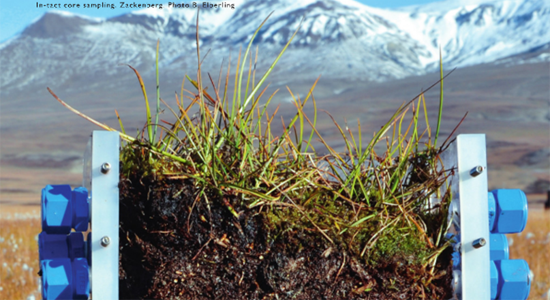Soil Microbiology

Soil Microbiology
Bacteria and fungi in soils have a profound impact on plant productivity as well as emission of carbon dioxide and other greenhouse gases to the atmosphere.
Our research focusses on globally important soil systems, mainly agricultural soils in temperate regions, Arctic soils, and soils in deserts and other drylands. We combine DNA- and RNA-based techniques to unravel the activity and diversity of soil microorganisms with measurements of microbial production and consumption of volatile organic compounds and greenhouse gases. This enables us to better understand the responses of soil microbiomes and their activity to climate change and their importance for future plant productivity. Among current projects, we investigate how nitrous oxide emissions from agricultural soils may be lowered, how microorganisms may be involved in stabilization of organic matter in soils, and how climate affects the microbiomes of soils and roots.
At Center for Volatile Interactions (www.VOLT.ku.dk), a Center of Excellence financed by the Danish National Research Foundation, we use state-of-the-art analytical instrumentation and molecular tools to unravel the importance of production and consumption of volatile organic compounds by microorganisms in soils, on roots and on leaves.
A project may include:
- Sequencing of PCR amplicons and metagenomes (only MSc)
- Metatranscriptomics (only MSc)
- qPCR
- Measurements of production and consumption of greenhouse gases
- Measurements of production and consumption of volatile organic compounds
- Advanced biostatical analyses of data based on DNA/cDNA sequences (only MSc) and/or volatile organic compounds.
Supervisor: Anders Priemé
Email: aprieme@bio.ku.dk
All organisms on our planet produce a wide range of volatile compounds to communicate, cooperate, and compete. These complex, yet invisible, interactions are not only essential to the organisms, but also have profound effects on global climate. While the processes exchanging the main greenhouse gases are well studied, we have a poor understanding of the biological processes releasing or consuming volatile compounds.
Center for Volatile Interactions is a Center of Excellence combining expertise in plant ecology, microbiology, plant/moss-microorganism interactions, marine biology and computer modelling with state-of-the-art instrumentation for analyses of volatile compounds, molecular analyses of microbial community structure and activity, as well as plant growth facilities. Our main ambition is to achieve an overall understanding of the biotic and abiotic parameters controlling the production and consumption of volatile compounds in different environments and how these compounds influence the life of other organisms. We believe that this will lead to a fundamental understanding of how key interactions between organisms and their environment affect the atmospheric burden of volatiles under current and future climates.
As an MSc student at VOLT, you will be involved in one of the many on-going projects within our center. The specific project depends on your interests and may include quantification of fluxes of volatile compounds from ecosystems, plants and/or microorganisms; quantification of volatile consumption by microorganisms; experiments unravelling how volatile compounds affect plants and microorganisms across species; and modeling of the biological processes involved in the production and consumption of volatile compounds.
You may gain hands-on experience with experiments involving plants/mosses, microorganisms, soils, marine systems and insight into the effects of climate change on ecosystem-volatile-atmosphere interactions. Methodologies may include PTR-ToF-MS and GC-MS to analyse volatiles, DNA- and RNA-based techniques like metagenomics and metatranscriptomics to study complex microbial communities, and advanced tools for data analyses and ecosystem modelling. Fieldwork in Northern Scandinavia and Greenland may be possible at specific projects.
Keywords: Biodiversity, climate change, bacterial activity
Supervisor: Anders Priemé
Email: aprieme@bio.ku.dk
Section of Microbiology

Contact
 Professor
Professor
Anders Priemé
Universitetsparken 15
Building 1, 1st floor
DK-2100 Copenhagen
Email: aprieme@bio.ku.dk
